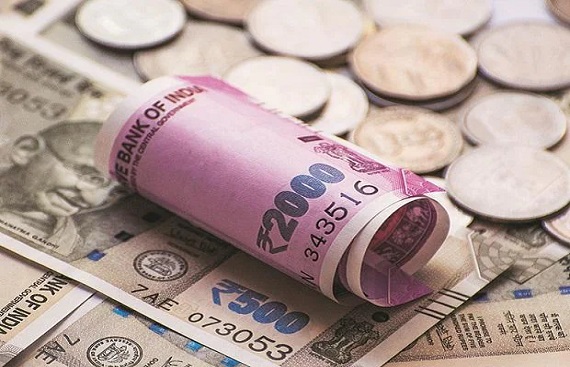Budget 2023: The Center may borrow a record-breaking Rs 16 trillion in FY24

The Indian government may borrow a record Rs 16 trillion ($198 billion) in FY24 to make up for a slowdown and a drop in tax receipts in the next fiscal year. According to which cited the median prediction of 43 experts, the government's total borrowing for FY23 was anticipated to be Rs 14.2 trillion.
The lower end of the gross borrowing prediction stood at Rs 14.8 trillion, while the upper end was at Rs 17.2 trillion. This is still higher than the estimate for FY23. In 2014, when Prime Minister Narendra Modi came to power, India’s gross borrowing stood at Rs 5.92 trillion.
During the past four years, India’s gross indebtedness has more than doubled amid heavy spending to help the poor and create a buffer against the effects of the COVID-19 pandemic.
India’s debt repayments may form a sizeable portion of these higher borrowings, according to ANZ economist Dhiraj Nim. The repayment burden is expected to remain elevated– around Rs 4.4 trillion–owing to heavy borrowings made by the government to cushion against the effects of COVID-19, he added.
However, the Centre is expected to reduce the Budget deficit to within 6 percent of GDP in FY24, according to a separate. This is sizeably above the 4.5 percent Budget deficit target for FY26. During the 1970s, the Budget deficit averaged 4-5 percent. To be sure, elevated interest rates have added to the burden of repayment. Last month, the International Monetary Fund (IMF) last suggested that India required a more ambitious plan to tackle medium-term borrowing. To this, India replied that its current plan was adequate. However, with Central and state borrowing at 83 percent of GDP and the country’s sovereign rating barely above junk, concerns remain.
India will have to strike a delicate balance between fiscal deficit and growth support since fiscal deficit and public debt remain elevated at historical highs, said Sujit Kumar Economist at the Union Bank of India.
While infrastructure development may continue to receive support, contracting tax collections may shrink the spread of capital expenditure compared to FY21, he added. Meanwhile, India’s Capex is expected to rise to a record Rs 8.85 trillion, or 2.95 percent of GDP in FY24. However, in growth terms spending will slow down to half of the pace of growth in the last three years, according to the poll.
Economists were divided in their opinion of what should dominate the government’s priorities. While 18 of 36 economists polled said the Budget should focus on fiscal discipline and infrastructure investment, the other half said the focus should be on job creation, education, healthcare, or rural development.
The Centre is expected to slash food and fertilizer subsidies by more than 25 percent to Rs 3.7 trillion from Rs 5 trillion in the FY23 Budget.
